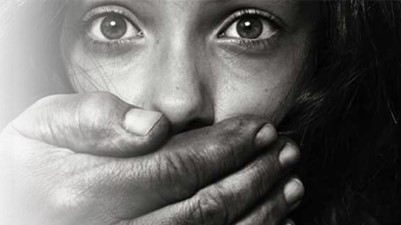UN Expert Urges Stronger Global Action to Protect Trafficked Children in Conflict Zones
Presenting her latest report to the UN General Assembly, Mullally emphasized that the neglect of children’s rights in conflict situations has allowed trafficking to flourish.

The United Nations has sounded an urgent alarm over the growing crisis of child trafficking in conflict and humanitarian settings, calling for immediate, specialized protection measures to safeguard children from systematic exploitation. Siobhán Mullally, the UN Special Rapporteur on trafficking in persons, especially women and children, warned that the world is witnessing "widespread and systematic child trafficking" in areas affected by war, displacement, and state fragility — and that governments are failing to uphold international obligations to protect the most vulnerable.
Rampant Trafficking Amid Conflict and Crisis
Presenting her latest report to the UN General Assembly, Mullally emphasized that the neglect of children's rights in conflict situations has allowed trafficking to flourish. "Failure to ensure the rights of children in conflict situations has led to widespread and systematic child trafficking," she said, adding that despite abundant and credible evidence, the global response remains fragmented and weak.
Children in conflict zones are trafficked for multiple exploitative purposes — from forced labour, servitude, and active combat roles to sexual slavery, forced marriage, criminal activities, begging, and even illegal intercountry adoption. In some regions, armed groups use child trafficking strategically to sustain their operations, recruiting children as soldiers or using them as logistical support in war efforts.
"Despite clear evidence of these abuses, prevention, protection, and accountability gaps persist," Mullally said. "These failures have devastating consequences and result in serious violations of children's rights, including their right to life, survival, development, and a childhood."
Children Punished Instead of Protected
A particularly troubling trend, according to Mullally, is the criminalization of children associated with armed groups. "Children are often arrested and detained rather than recognized and protected as victims of trafficking, in contravention of international law," she noted. "As a result, they are denied the very protection they are entitled to."
This treatment not only violates the non-punishment principle under international human rights and humanitarian law but also perpetuates cycles of trauma and marginalization. Many detained children face further abuse in detention centers and are deprived of rehabilitation opportunities.
Structural Failures Fueling the Crisis
The Special Rapporteur highlighted deep-rooted structural factors that exacerbate child trafficking. Weak child protection systems, corruption, poor governance, and fragile judicial institutions create fertile ground for traffickers to operate with impunity. "Structural challenges such as threats to the rule of law, inadequate disarmament and demobilisation processes, and the proliferation of small arms and light weapons further intensify the risks," Mullally explained.
She also warned that failures in identification and protection often lead to refoulement — the illegal return of victims to dangerous environments — as well as family separation, prosecution of victims, and denial of consular assistance.
Call for Tailored, Child-Centered Protection Systems
Mullally urged all States to adopt child-centered and context-sensitive anti-trafficking measures, stressing the need for approaches that account for children's gender, race, ethnicity, migration status, disability, and affiliation with Indigenous groups or minorities. "Responses must be rooted in equality and human rights," she said.
She recommended the creation of specialized child justice systems that guarantee access to justice, family reunification, and rehabilitation for child victims. "Child victims must be recognized under international law and their recovery, reintegration, and rights-based family reunification must be prioritized," she said.
Strengthening Justice and Accountability
The UN expert further called for strong institutional measures in conflict and post-conflict contexts, including the establishment of specialized units within police, judicial, and prosecutorial bodies. "In conflict, transitional and post-conflict settings, the risks of reprisals, intimidation, and interference with the administration of justice are high," she warned. "Effective witness protection and specialized training are essential to ensure that child victims are not retraumatized."
Mullally also underscored the need for early identification through robust screening and referral systems. "Protection and assistance must be timely, ensuring safe and unimpeded humanitarian access, the appointment of guardians for separated and unaccompanied children, and effective access to international protection, including asylum," she said.
A Global Call to Action
The Special Rapporteur's report is a powerful reminder of the urgent need for collective global action to end child trafficking in conflict zones. It calls upon States, international organizations, and civil society to strengthen child protection systems, ensure accountability for traffickers, and uphold the principle that no child should ever be punished for their own exploitation.
As conflicts proliferate and humanitarian crises deepen across the globe, the protection of children from trafficking must become a cornerstone of international peace, security, and justice efforts — not an afterthought.







